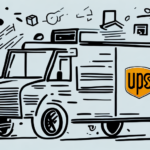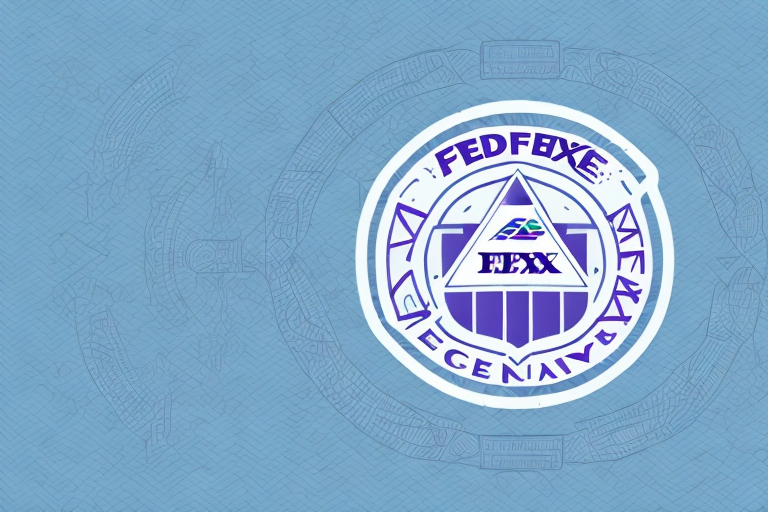Understanding Ecommerce Shipping Insurance
Ecommerce shipping insurance is a type of coverage that safeguards your business against losses or damages that may occur during the transit of your products. This insurance can cover a range of incidents, including accidents, natural disasters, theft, and other unforeseen circumstances that might disrupt the shipping process. In the event that your products are lost or damaged while in transit, your ecommerce shipping insurance provider will reimburse you for the value of the affected items.
It's important to recognize that not all shipping carriers offer comprehensive insurance options. Even when insurance is available, the coverage might be limited. Therefore, ecommerce businesses are advised to consider purchasing additional shipping insurance to ensure that their products are fully protected during transit. Some ecommerce platforms also provide integrated shipping insurance options, simplifying the process of obtaining coverage.
Importance of Ecommerce Shipping Insurance
Shipping insurance may appear to be an additional expense, but it is a vital investment for any ecommerce business. Without proper coverage, your business could face significant financial losses and reputational damage due to lost or damaged products. Ecommerce shipping insurance offers peace of mind, allowing you to focus on growing your business rather than being constantly worried about shipping risks.
Moreover, having shipping insurance can enhance customer satisfaction. If a customer receives a damaged or lost product, possessing shipping insurance enables you to quickly replace the product or issue a refund. This responsiveness demonstrates to your customers that you value their business and are committed to providing a positive shopping experience, which can lead to increased customer loyalty and repeat business.
Types of Ecommerce Shipping Insurance
Full-Value Coverage
This coverage type protects the full value of your products in case of loss or damage during transit. It ensures that you are reimbursed for the complete cost of the lost or damaged items.
Declared Value Coverage
With declared value coverage, you declare the value of your products when shipping them. In the event of loss or damage, you are reimbursed based on the declared value of the items.
Third-Party Insurance
Third-party insurance is provided by an external provider, often offering more competitive rates compared to carrier-provided insurance. This option allows for greater flexibility and potentially broader coverage.
It's crucial to note that not all carriers provide the same types of insurance, and some may have specific limitations or exclusions. Carefully reviewing the terms and conditions of each insurance option is recommended before making a decision. Additionally, some ecommerce platforms may offer their own insurance options or partnerships with insurance providers, adding convenience and peace of mind for sellers.
Choosing the Right Insurance Provider
Reputation and Reliability
When selecting an insurance provider, consider the provider's reputation, coverage options, and pricing. Opt for a provider known for comprehensive coverage, competitive rates, and excellent customer service. Reading reviews and conducting thorough research can help ensure that you choose a trustworthy and reliable provider.
Claims Process
The ease of filing claims is another critical factor. Look for a provider with a straightforward claims process, clear instructions, and minimal paperwork. A hassle-free claims process can save you time and reduce stress when you need to file a claim.
Additional Services
Some providers offer extra services or benefits, such as package tracking or shipping discounts. These additional features can add value to your overall ecommerce shipping strategy and help you save money in the long run. Don't hesitate to inquire about any extra services or benefits that potential providers may offer.
Managing Costs and Budgeting for Shipping Insurance
The cost of ecommerce shipping insurance varies based on factors like the value of your products, shipping destinations, and the carriers you use. While it adds to your shipping expenses, the protection and peace of mind it provides are invaluable. To effectively budget for shipping insurance, include this cost in your overall shipping expenses. Additionally, consider negotiating discounted rates with your carrier or insurance provider to manage costs more efficiently.
Avoiding Common Mistakes When Purchasing Shipping Insurance
When purchasing ecommerce shipping insurance, it's essential to avoid common pitfalls to ensure adequate protection:
- Not Reading Terms and Conditions: Always thoroughly read the terms and conditions to understand what is and isn't covered.
- Incorrect Valuation: Overestimating or underestimating the value of your products can lead to insufficient coverage or unnecessary costs.
- Limited Provider Comparison: Failing to compare multiple insurance providers can result in missing out on better coverage options or rates.
- Assuming Carrier Insurance is Sufficient: Carrier-provided insurance might not fully cover the value of your products, making additional insurance a wise choice.
Regularly reviewing and updating your insurance policy ensures that it continues to meet your business needs effectively.
Best Practices to Reduce the Need for Shipping Insurance
While shipping insurance is crucial, implementing certain best practices can minimize the likelihood of needing to use it:
- High-Quality Packaging: Use sturdy, high-quality packaging materials to protect your products during transit.
- Accurate Shipping Addresses: Double-check shipping addresses for accuracy to prevent delivery errors.
- Reliable Carriers: Partner with trustworthy carriers known for their reliability and service quality.
- Clear Tracking Information: Provide customers with clear tracking information to keep them informed about their order status.
Additionally, offering free shipping for orders above a certain amount can encourage customers to consolidate purchases, reducing the number of individual shipments and associated risks. Providing local pickup options for nearby customers is another way to eliminate shipping entirely for those orders.
Regularly reviewing and optimizing your shipping policies and procedures ensures efficiency and effectiveness, further reducing the need for insurance and enhancing the overall customer experience.
Real-World Case Studies
Numerous ecommerce businesses have benefited significantly from shipping insurance:
- Clothing Retailer: A clothing store recovered the cost of a lost shipment of high-value dresses through their shipping insurance provider, preventing major financial loss.
- Small Business Owner: A small business owner overcame the devastating impact of a flood that damaged their inventory by relying on comprehensive shipping insurance coverage.
- Jewelry Store: A jewelry store successfully reclaimed the value of a stolen package from their doorstep through their shipping insurance, allowing them to maintain business continuity without significant financial strain.
- Home Décor Company: A home décor business expanded internationally with confidence, knowing their shipping insurance would cover any potential damages or losses during overseas shipments.
Frequently Asked Questions
What happens if my products are damaged during shipping?
If your products are damaged during shipping and you have ecommerce shipping insurance, you can file a claim with your insurance provider. Upon approval, you will receive reimbursement for the value of the damaged products.
Is carrier-provided insurance sufficient?
Carrier-provided insurance offers some level of protection, but it is often limited and may not cover the full value of your products. Investing in additional ecommerce shipping insurance provides more comprehensive coverage and greater financial security.
How much does ecommerce shipping insurance cost?
The cost varies based on factors such as the value of your products, shipping destinations, and the carriers you use. It's important to compare rates and coverage options from multiple providers to find the best fit for your business needs.
How do I know if I need ecommerce shipping insurance?
If your ecommerce business ships products to customers, investing in shipping insurance is advisable. It protects you from potential financial and reputational damage resulting from lost or damaged products during transit.
Conclusion
Investing in ecommerce shipping insurance is a crucial step for any ecommerce business aiming to protect itself from the inherent risks and potential losses associated with shipping. By understanding the various aspects of ecommerce shipping insurance, choosing the right provider, and implementing best practices to minimize shipping risks, your business can enjoy peace of mind and focus on growth and success. Proper insurance not only safeguards your financial interests but also enhances customer trust and satisfaction, contributing to the long-term success of your ecommerce venture.






















